Hair loss – what to do?
Below are Livi doctors’ tips for understanding and treating premature hair loss.
Is it normal to lose hair?
First of all, you should know that it is normal to lose between 30 and 150 hairs per day . This loss is an integral part of the hair cycle. For each hair, this includes a growth phase under hormonal and nutritional influences, an involution or regression phase, and a resting phase preceding the loss.
This physiological loss is subject to seasonal variations and increases in spring and autumn .
When hair loss no longer meets these physiological criteria, we speak of alopecia .
Alopecia refers to a diffuse or localized, acute or chronic, partial or total loss of hair (and/or body hair). It occurs on healthy or scarred scalps and can be reversible or irreversible depending on its cause.
Over-processing of hair
Regular use of different products can weaken hair follicles and damage them. Over-processing your hair can lead to gradual hair loss, but this should stop as soon as you stop using the products that are harmful to your hair and take better care of your hair. Perms, coloring, straightening, harsh shampoos and conditioners can damage your hair.
Hormonal imbalances
Hormonal changes can also cause hair loss. For example, this can happen to women after childbirth or during menopause . For men, it can come with age due to changes in their body’s hormonal composition. The hormone dihydrotestosterone (or DHT) acts on the hair follicles, leading to hair loss.
Stress
Stress and anxiety can also cause hair loss. Stress can cause hair to thin by constricting blood vessels in the scalp. It can also cause the production of androgen hormones that accelerate hair loss .
Deficiencies
Although your hair is mainly made of protein, it needs several minerals and vitamins to grow and stay healthy. Zinc, iron and folic acid are three essential nutrients for hair growth. Iron, in particular, plays a role in the nutrition mechanisms of the hair’s reproductive cells, which is why a lack of iron , due to lack of dietary intake or excess loss during bleeding, will have an impact on hair density.
Your body also needs several vitamins such as vitamin D and vitamin B12 to promote hair growth and maintenance, as well as minerals such as selenium. Deficiencies can lead to hair loss.
Thyroid disorders
The thyroid gland produces thyroid hormones that affect the body ‘s basic metabolism. Any irregularity in the activity of the thyroid can lead to major problems in your body. A thyroid disorder such as hyperthyroidism , a condition related to an overactive thyroid where the production of TH3 and TH4 hormones is excessive, can therefore cause hair loss.
Some medical treatments
Hair loss can also be caused by certain medical treatments. Chemotherapy is the most common example. It can follow the taking of various medications, such as antidepressants or blood thinners.
Fast weight loss
Sudden weight loss due to crash dieting, bariatric surgery , illness or health complications causes a sudden imbalance in your energy balance. Nutrients are diverted from your scalp to other parts of your body due to your weakened state.
A skin infection
Skin infections and disorders can also cause thinning hair. Psoriasis , for example, is a common skin condition that can cause hair loss.
Alopecia
It is recognized by well-defined bare patches with exclamation point hairs at the periphery. It is an autoimmune disease, our own immune system attacks our hair follicles causing hair loss in patches. We most often observe spontaneous hair regrowth within a few months, starting with white down that gradually turns color.
Ringworm
Ringworm, or rather should we say ringworms because there are two main types, large and small plaques. It is an infection of the hair follicles of the scalp and the surrounding skin by microscopic fungi. It mainly affects children and is contagious. Its treatment is specific to fungal diseases.
Repetitive hair pulling
Repetitive pulling can be caused by trichotillomania (compulsive self-aggressive disorder) or by hair styling habits (dancer’s bun, braiding, excessive and repeated blow-drying, etc.). When it is due to excessive stretching of the hair, alopecia begins with an anterior frontotemporal band and then progresses towards the back.
What to do in case of hair loss?
If there is a cause for hair loss such as a disease or deficiency, its treatment is then based on addressing this cause.
Telogen effluvium does not require any special treatment.
In the case of alopecia areata , several treatments can be used depending on the extent of the plaques: local corticosteroids, minoxidil, PUVA therapy, local immunotherapy, etc.
Androgenetic alopecia can benefit from specific treatments in the event of significant psychological impact. These include drug treatment and surgical treatments. However, be aware that drug treatments are not reimbursed by Health Insurance for this indication and only have a suspensive effect; hair loss will resume when treatment is stopped.
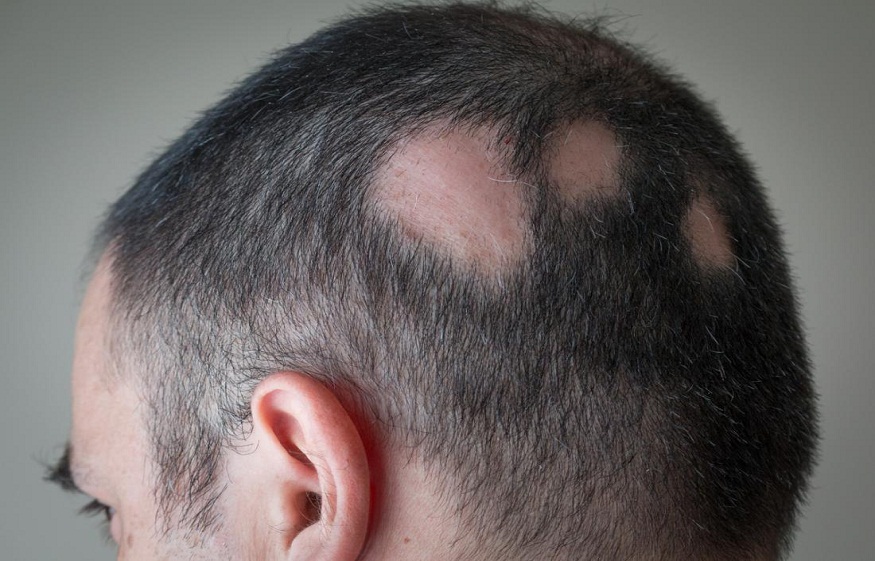
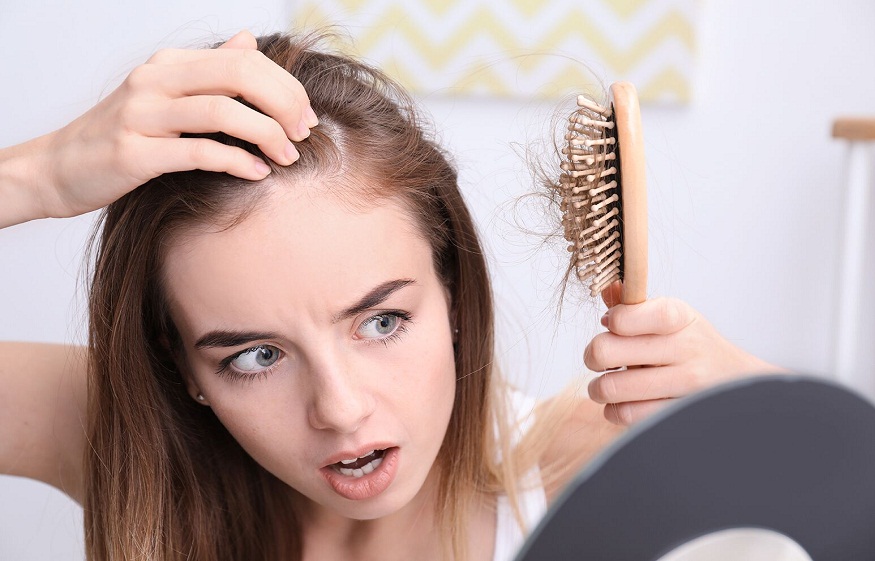




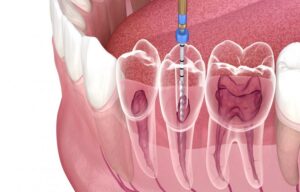
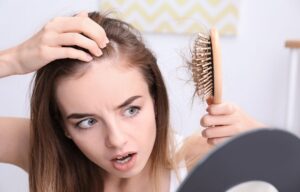



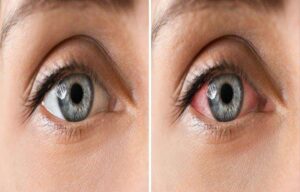
Post Comment
You must be logged in to post a comment.